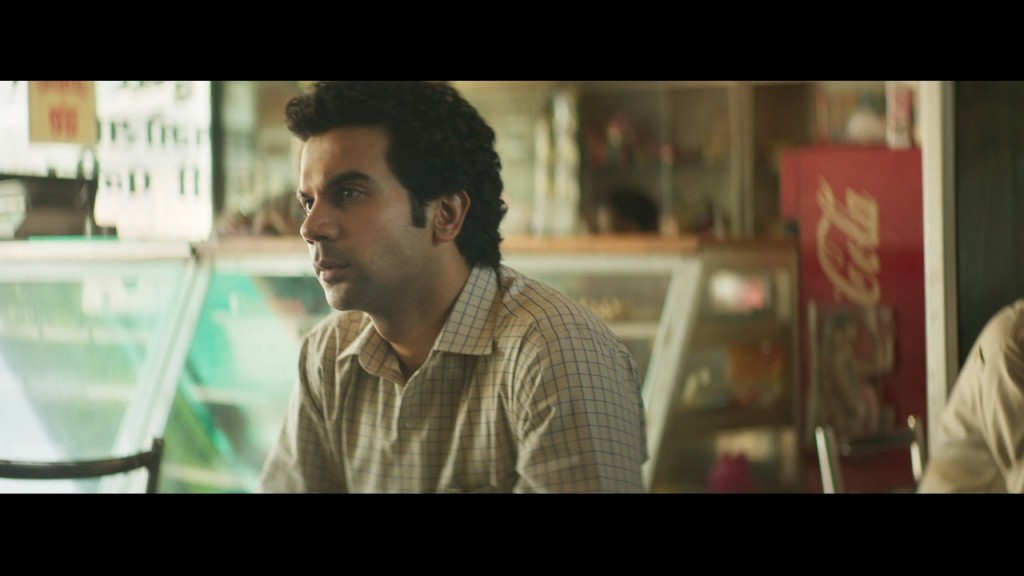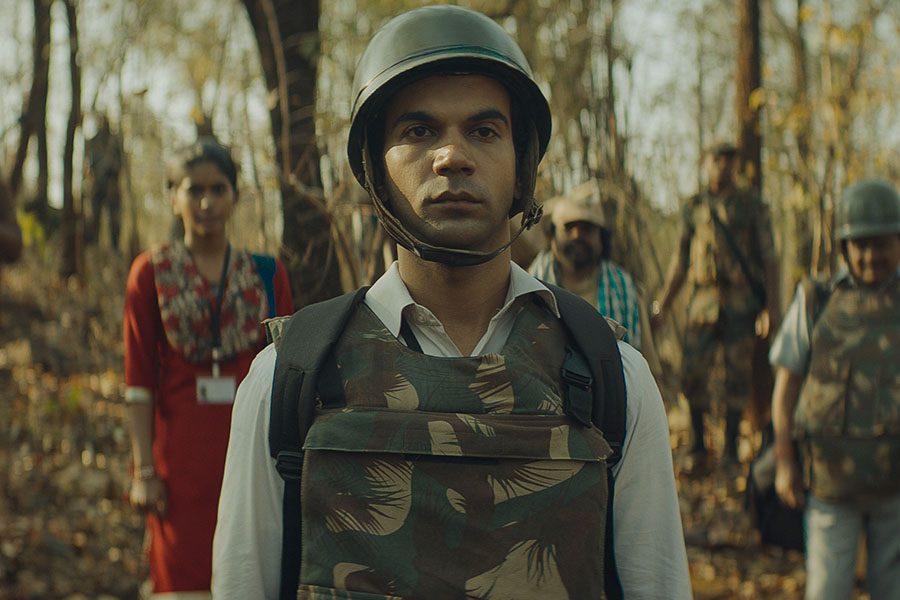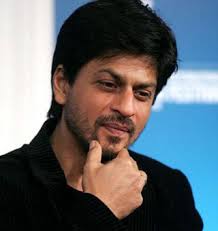
Genre: Comedy, Drama
Director: Amit Masurkar
Starring: Rajkummar Rao, Pankaj Tripathi, Anjali Patil, Raghuvir Yadav
Runtime: 1h 46mins
The challenge of writing about a film like ‘Newton’ is the difficulty to evaluate all its nuances and multiple layers within the parameters of a review. In fact, it’s quite problematic to say what the film is about without running the risk of sounding reductive. Without a doubt, this is one of the smartest and richest screenplays Hindi Cinema has encountered in the recent years. Barring a few in the beginning, almost every scene is so skilfully written and marvelously executed especially by the actors, that each of them perhaps deserve a complete and solely dedicated write up.
The deceptively simple plot line follows a young idealist bureaucrat called Newton Kumar who is appointed as the presiding officer of a polling booth in the interiors of Dandakaranya during the LokSabha Elections. He is accompanied by a couple of senior colleagues and a local BLO of Adivasi origin. The responsibility of their safety and security, since it’s a region which is declared to be ‘disturbed’ by the state due to the presence of Maoist guerrillas, is assigned to a military unit headed by Aatma Singh. The film is about the motley crew’s journey to the designated polling booth and their experiences, which can hardly be called dramatic in the conventional sense, from daybreak till afternoon.
The titular Newton was born Nutan Kumar (loosely translates to ‘New Youth’) who tweaked the proper noun during registration for board exam, thereby not only becoming Newton Kumar in name but also an ideal subject of the post-renaissance enlightenment. One of the introductory images of the character is a frame within a frame where he is sitting by a window with a portrait of Dr B.R.Ambedkar hanging on the wall above him, who among other things, was also the chief architect of the Indian Constitution. The next moment, the light goes off and the entire frame becomes dark. Thus, begins the sharp-edged narration of the enlightened idealist taking the hallowed word of democracy into the wilds. In a mission supervised by the military, Newton is assisted by the opportunist Shambhoo whose interest lie in the possibility of real estate investments in the untouched territory, the world weary Loknath who’s a self-proclaimed writer hatching outlandish plots of holding elections in remote areas where the voters have turned into “zombies”, and finally Malko, the Adivasi woman, the classic and perennial ‘Other’ in the Statist discourse.
The triumph of the film lies in its conscious effort to continuously shift the subject positions and thus never allowing a complete or a comfortable process of identification for the audience and thereby it carefully avoids turning into a blatant propaganda. Instead, it makes room for a wide network of discourses such as that of the State, bureaucracy, military, etc. and throughout the film, there is a continuous dialectic approach such as bureaucracy-military, centralized rule-local governance, oppression-retaliation, fact-news, Hindi as State’s Language-Gondi as the Tribe’s language, etc. In almost a methodical fashion, and again the film is very much aware of this as evident from the constant reference to figures, facts and numbers, the narrative possibilities are all exhausted leaving behind just a setting and a few characters and thereby only the discursive positions. So, finally when Newton is lost in the jungle carrying the EVM and running out of places to run or when he is holding the military commander at gunpoint to ensure the last four voters put in their ballots, the idea is not just clear but rather eerie in its implications. Beneath the absurd carnival of democracy, opinions are articulated at gun point. The tribal population only count when they have the ink on their fingers.
While the film can no way be called technically flawed, the consistent use of shallow focus cinematography has seriously interfered with the cinematic experience of the film. It completely severed the characters from their space thus limiting the possibility of the images. Furthermore, given the inherent absurdity of the content, the images fail to resonate with that sense of irrational. Same thing can be said about the sound design which could have taken considerable leaps instead of focusing on a realistic approach with respect to the space.
However, Shweta Venkat Mathew’s editing not only holds the entire thing together but perfectly ensures the languid passage of time which can even make room for pauses where the narrative literally comes to a halt waiting for something to happen. The characters stop doing their jobs and merely wait out the time, be it the deadline for voting process to end or the commencement of lunch break in a government office. This idea of waiting, which recurs throughout the film, invokes a couple of things. Expectation and inevitability. There possibly couldn’t have been a more appropriate way for a film to deal with the functioning of the Indian democracy; the anticipatory excitement to be immediately followed by a mundane and dreary sense of redundancy and hopelessness.
All things said and done, the merit of the film certainly has two equally deserving sets of contenders, the writers and the performers. With its steady flow of sharply written lines and carefully put together scenarios, this film might very well go down as something of a ‘cult classic’ spawning a series of quotations and memes, in the days to come. And just the way these lines and scenes must have been an actor’s delight, it was equally gratifying to experience their performances on screen. Even the least important member of the cast seems to have delivered nothing short of their best. It was a refreshing experience to see the veteran Raghubir Yadav enjoying his own performance in a small but neatly well-rounded character of Loknath, lighting up the screen with his easy delivery whether narrating bizarre plotlines or passing mythology as history. As for Rajkummar Rao and Pankaj Tripathi, playing Newton and Aatma Singh respectively, no praise is perhaps enough. Whether Rao’s nervous twitches or Tripathi’s calm silence, these two actors have proven themselves to be among the finest in their trade.
My Verdict
My Ratings
4.5
Watching them going face-to-face on screen is like a handbook of film acting, doing justice to the lines and building up the characters in the pauses in between.








